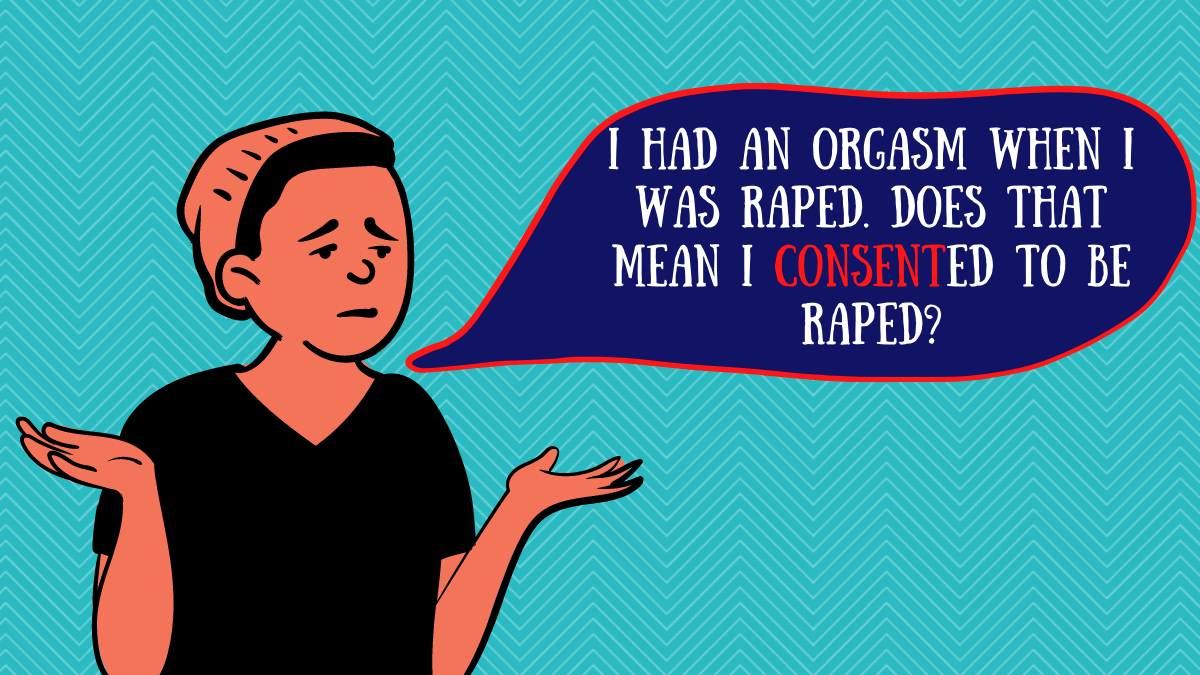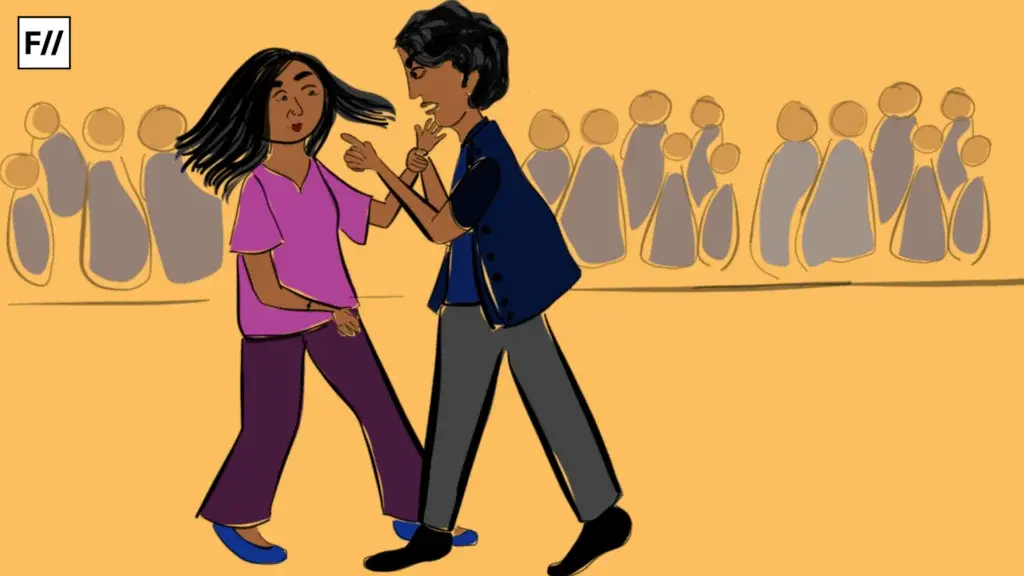Editor’s Note: This month, that is November 2020, FII’s #MoodOfTheMonth is Sexual And Reproductive Health, where we invite various articles to highlight how health outcomes are determined with respect to a person’s social, political, economic and cultural contexts of their gender and sexuality, and how these identities shape their life experiences vis-a-vis SRHR in India. If you’d like to share your article, email us at pragya@feminisminindia.com.
Trigger Warning: Mentions of Pedophilia, Rape, Abuse.
“My genitals don’t tell you what I want or like, I do.” Emily Nagoski (Sex Educator)
Most people I know have experienced child abuse. And most parents are not aware of what their child has gone through. A crime so common, yet so alien. The lifelong trauma that the same child has to face for years to come, and sometimes all their life is something that is not even considered real. It’s years after the crime has happened, it hits the person one day and nothing is the same again. The experiences are so different, so intersectional and so deeply unfortunate and horrifying, each one of them.
Ministry of Women and Child Development in India conducted a study in 2007 in 13 states and it was found that 21% of the participants were “exposed to extreme forms of sexual abuse…about half the participants were exposed to other forms of sexual abuse.” Another survey by humanitarian aid organisation World Vision India involved 45000 children in the 12-18 age group in 26 states and revealed that one in every two children has been a victim of child abuse.
Memories of a Machine
Memories of a Machine is a 9 minutes 47 seconds long documentary directed by Shailu Padindala, featuring Kani Kusruti as the protagonist. It was released on YouTube in 2016. It was also screened at the Bangalore Queer Film Festival. The movie is about a woman remembering her first sexually pleasurable experience, which was when she was eight and her ‘vagina was rubbed’ by a peon in her school who was also her first crush.
According to the director’s caption on YouTube, “Memories of a Machine explores sexuality through human moral and instincts as a woman narrates her early sexual experience as a curious young girl and her quirky struggles in discovering “self” amid the traditionally bound system.” After the criticism that the movie received, the director released another video in which she says, “I do not encourage child abuse or pedophilia. I do not support any form of damage to the human life…Here, I am today as a filmmaker wanting to create brutally honest films that will detach you from forcing yourself into taking that stance, and looking at life more objectively once.”
This idea of experiencing pleasure while rape is something that stems from a similar line of thought. Many people experience orgasm or pleasure while being raped, and they hesitate to talk about it. They tend to blame themselves because of the response their body gave.
Why is this problematic?
I am now going to begin with my *personal* take on this movie. First, let’s see the non problematic part of the movie. The director and actor both have done a phenomenal job insofar as the technicalities of the movie are concerned, be it direction, acting, or editing. The presence of a woman character being extremely open about her sexual experiences and her sexual desires, her husband being more than welcoming about it are all quite subversive for the patriarchal society that we live in, but at what cost does this transgression or subversion happen is a question of utmost relevance for me.
In the very beginning of this article, I have cited some statistics about child abuse which clearly display how it’s the story of many and yet is so distant. The entire movie’s central idea is child abuse and of course, the director does not condone/endorse it which she has clarified, but that does not do away with the harm this entails or the horrid idea the documentary perpetuates. She was inspired by a real life story of her friend who experienced pleasure while being abused as a child. The question here is not even about “discovering” one’s sexual desires, it is more about whether an eight-year-old child is even aware about what is sexual pleasure and if it is even right to say that just because the child enjoyed it, it’s no longer an abuse or is not against their consent? The already distant child abuse might appear as something natural or much worse as something positive after this.
Personally, for me it was rather disturbing to see someone reminiscing about this incident. It is not the same for me and the people around me. It might not seem wrong to a child, but as soon as they learn more and see the world, it falls upon them and it is never a pleasant feeling, at least for me. One can only imagine the idea this might give to a sexual predator or how this might pan out for another child. The husband does tell the wife to never narrate this story to a pedophile, but this was brushed aside as a joke.
This becomes problematic on so many levels, even when the intent might not have been that. Of course, the movie was not made to glorify abuse. No one in their right mind does that. Any movie that might glorify any form of abuse will always say that it was not intentional. We know it might not have been, but does that mean you cannot be held accountable for what the movie actually showcased?
Also read: The Orgasm Gap: How Body Shaming Affects Women’s Sexual Experiences
Rape and Orgasm
This idea of experiencing pleasure while rape is something that stems from a similar line of thought. Many people experience orgasm or pleasure while being raped, and they hesitate to talk about it. They tend to blame themselves because of the response their body gave.
Propagating an idea that this might be true or much worse, glorifying abuse can give them more reasons to justify their wrongdoings. I do not see a debate here. It is not a debate. Anything without consent cannot be justified, NO MATTER WHAT.
Dr. Myrtle tries to answer the reason behind this response, “Orgasms are reflexes, the result of a combination of physical stimulation and arousal. When this guy touched her non-consensually (physical stimulation), her body responded to the high arousal of fear, and she had an orgasm. It does not mean she consented to the experience, enjoyed it, or was asking for it. This type of experience can be quite confusing to abuse survivors, because under certain stressful circumstances, the body can have automatic responses that we cannot control”.
In case of men, the same psychological arousal might happen during assault and again IT DOES NOT MEAN THEY ARE ASKING FOR IT. It is still non consensual and is rape. Another article puts things into perspective and explains,
“People who sexually abuse boys and men often use their knowledge about male bodies to deliberately cause an erection and/or ejaculate to occur. They do this because they know it is extremely confusing and embarrassing. They might also do it to try and convince the person being abused (and also themselves) that what is happening is not really abuse. Whatever the reasons, ultimately they know that if the boy or man is aroused, they might be less likely to tell anyone about the abuse due to feelings of shame and embarrassment”.
The abusers feel good about themselves when the body of the person being raped or abused in any sense shows signs of “enjoyment”. It feeds their vanity as if they have flipped the mind of the victim, which is overtly horrible. Propagating an idea that this might be true or much worse, glorifying abuse can give them more reasons to justify their wrongdoings. I do not see a debate here. It is not a debate. Anything without consent cannot be justified, NO MATTER WHAT.
Also read: Please Mind The Orgasm Gap: Inspecting Unchecked Patriarchy In Porn
When we try to normalise rape, any kind of abuse, rape jokes and even go to an extent of glorifying or romanticising it because of the incorporation of arousal, we disregard the pain, the suffering, the struggles of many. We give power to the sexual predators. We make way for so many more incidents like this to happen. We become catalysts for these incidents when we toss aside the trauma that comes with a single non consensual touch. The numbness that a person feels in that moment is unparalleled and no one ever deserves that, come what may. A movie like Memories of a Machine might be extremely subversive, but I felt it was laughing at me. The experience of that friend during her childhood was her own, but its glorification to this extent is highly problematic.




